Post-Baccalaureate Program in Environmental Health for Pre-Med Students
The Johns Hopkins Bloomberg School of Public Health offers a customizable degree for pre-meds who want a comprehensive understanding of the intersection between the environment and health
Why A Post-Baccalaureate Gap Year in Environmental Health For Pre-Med Students?
Pre-med courses provide the foundation for students planning to attend medical school. These courses provide a strong understanding of statistics and epidemiology. Elective courses in physiology, advanced toxicology, and environmental and occupational disease not only emphasize knowledge covered on the MCAT but also differentiate graduates from the typical medical school applicant. Ideal candidates present with a strong foundation in the basic sciences and math. The American Association of Medical Colleges site lists our MHS as a post-baccalaureate program.
Understanding environmental factors that affect health is vitally important for anyone planning a career in medicine. A gap year in environmental health will help you:
- Stand out as a medical school candidate
- Improve your BCPM GPA to increase your chances of getting accepted into medical school
- Be more prepared for the MCAT and the medical school curriculum - study advanced biology, immunology, toxicology, and more
- Make the transition into medical school easier by completing our fast-paced and rigorous program
Environmental Health Master's Program for Pre-Medicine Students
Master of Health Science in Environmental Health (MHS)
Onsite | Full-Time or Part-Time | 9 months–2 years
Designed for applicants who wish to pursue an MD, PhD, or a career in the intersection of environmental and public health
"EHE provided a great public health foundation to bring to medical school."
- Monica Taneja, MHS '19
What our MHS Program Has to Offer Pre-Med Students
- Adviser who is an MD
- Special advising sessions on taking the MCAT, interviews, the application process, and other aspects of medical school
- A mentorship program that matches medical residents with pre-med students
- Opportunities to learn about medical specialties that incorporate public health, like occupational and environmental medicine
- Half-off MCAT prep through Kaplan
Frequently Asked Questions
Johns Hopkins University offers two customizable degrees for pre-meds who want a comprehensive understanding of the intersection between the environment and health. We answer some of the frequently asked questions we get about this program.
Will your program help me get into medical school?
Yes. A gap year in EHE should help you stand out as a medical school candidate, may improve your BCPM GPA, and will prepare you for both the MCAT and the medical school curriculum. You can study advanced biology, physiology, toxicology, and more.
Our graduates have gone on to attend highly prestigious medical schools, including the University of Maryland, Harvard, the University of Minnesota, and the George Washington School of Medicine.
Why should I take a gap year before starting medical school?
Some pre-medical students see a gap year as the time to apply to medical school. Our pre-med adviser will help you with the application process, help you find shadowing opportunities, and more. We have matched pre-med students with occupational environmental medicine residents in our department. Our school has an agreement with Kaplan for half off MCAT prep. Other students see it as a time to improve the BCPM GPA, or to explore interests that might make them stand out on a med school application.
Why should I focus on environmental health during my gap year?
Human health depends on the planet’s health, and vice versa. If we want to prevent illness before it happens, we need to rethink our environment. Physicians have been asking patients more and more about exposures in their homes, at their workplaces, and in their communities (do they have access to healthy food, transportation, nature, etc.). Environmental health offers opportunities for physicians not only to treat their patients but also to help them thrive.
How can a post-baccalaureate program in environmental health help me prepare for medical school?
The Bloomberg School of Public Health is consistently ranked as the No. 1 school of public health in the country, and our department is ranked #1 in environmental health sciences. The rigors of completing our highly selective, fast-paced, rigorous program will make the transition into medical school easier. We frequently get feedback from our graduates that after completing our program, medical school seemed easy!
What does your program offer?
- A dedicated pre-med area of interest
- Adviser who is an MD
- Special advising sessions based on your needs (e.g. on taking the MCAT, interviews, the application process, and other aspects of medical school)
- A mentorship program that matches medical residents with pre-med students
- Option to transfer from the MHS into the ScM program (a two-year degree with a research focus and 75% funding in year two)
- Opportunities to learn about medical specialties that incorporate public health, like occupational and environmental medicine
- Half-off MCAT prep through Kaplan
What do graduates of your program say about the experience?
“My degree will aid me in assessing the whole picture and providing holistic care for my patients.”
Benjamin Eichelman, MHS ’23
My strong background from this program helped me secure a research fellowship with Johnson & Johnson, where I am currently a National Medical Fellowships J&J Aim scholar.
Peter Campbell, MHS '20
"Many medical textbooks don't delve too deeply into the environmental impacts of disease and human health, so I feel incredibly lucky to be able to look at my medical studies from this vantage point I got with my EH degree."
Tiffany Onyejiaka, MHS '22
EHE provided a great public health foundation to bring to medical school, especially in epidemiology, which came up on board exams and in research. Environmental health is also becoming more and more important in thinking about how climate change affects patients.
Monica Taneja, MD, MHS '19
Alumni Spotlights
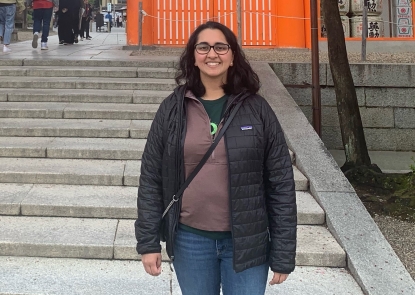
Monica Teneha, MD, MHS '19
An MHS in environmental science prepared Monica Taneja for the rigors of medical school. After completing med school at the University of Maryland, she was matched to a psychiatry residency at Harvard South Shore.
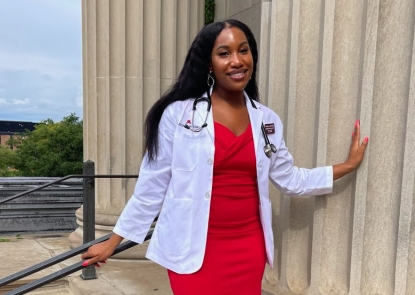
Spotlight: Tiffany Onyejiaka, MHS '22
Tiffany is a medical student at The University of Minnesota School of Medicine, where she is attending on a merit scholarship.
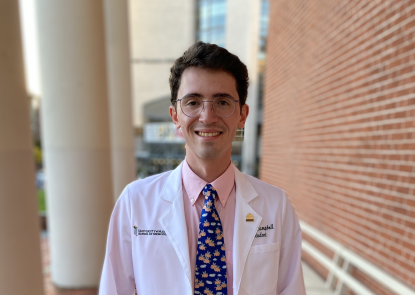
Peter Campbell, MHS '20
Peter Campbell is a medical student at the University of Maryland School of Medicine.
Contact Us
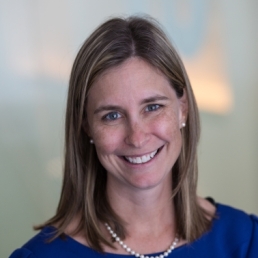
Megan Latshaw, PhD '05, MHS '01
Department of Environmental Health and Engineering
Megan Latshaw, PhD '05, MHS '01, translates environmental health science to policy and practice, with a focus on designing communities where the healthy choice is the easy choice.
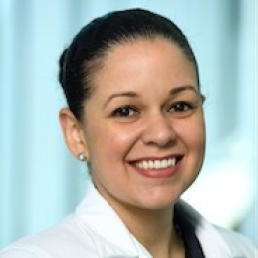
Aisha Rivera Margarin, MD, MS
Faculty Associate, Environmental Health and Engineering
Originally from Puerto Rico, Dr. Rivera is bilingual and board-certified in occupational and general preventive medicine. As Program Director, she organizes training and educational experiences, evaluates and mentors residents, and maintains the residency's ACGME accreditation through several reporting and administrative tasks.
